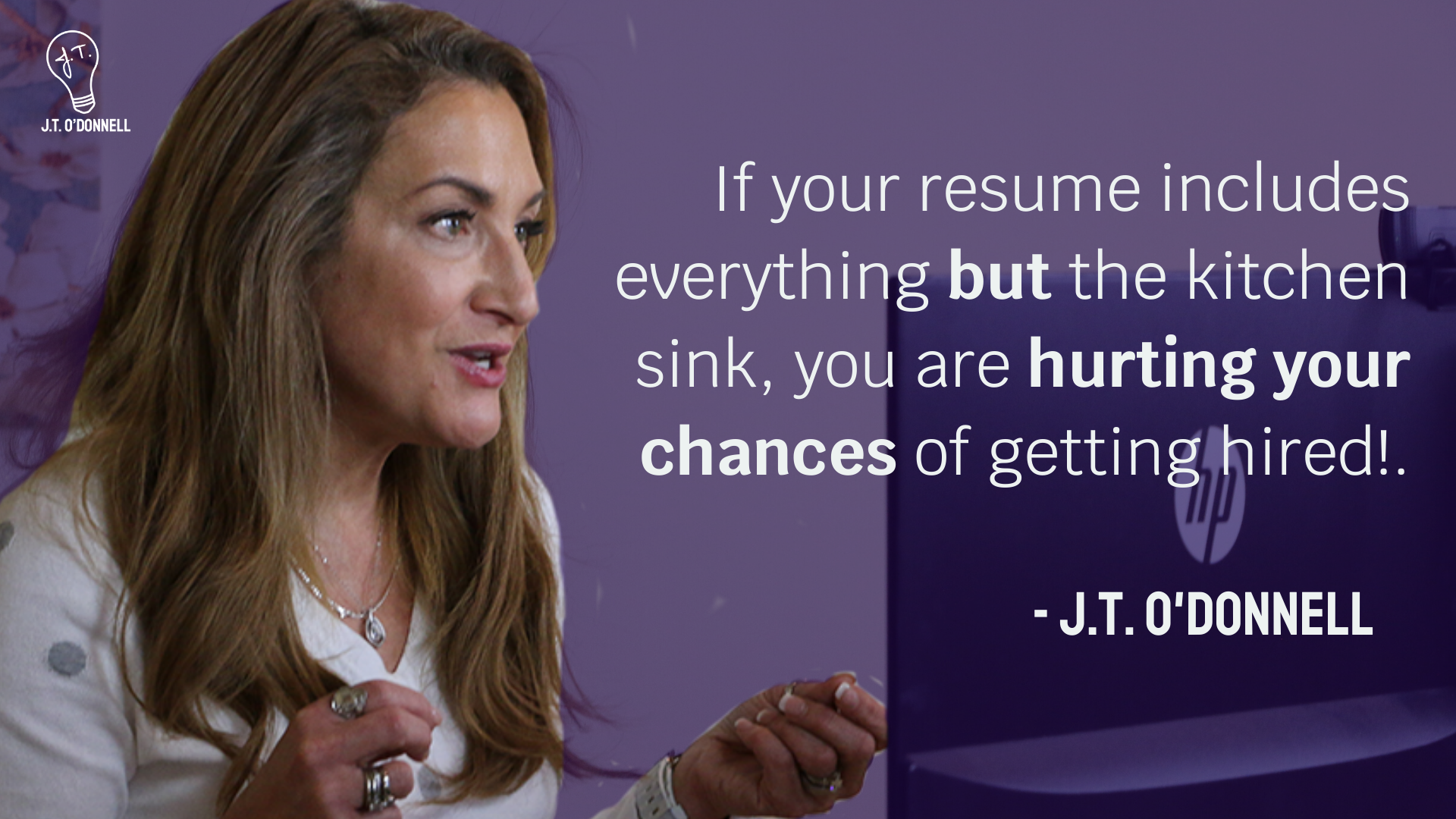Finding a job is hard enough on it’s own, don’t make a mistake like this that can ruin your chances of getting job interviews!
Designing Your Resume Stinks!
It’s true, I’ll be the first to say it. There are hundreds of resume templates out there, some of them color coded, some with fancy fonts, and some plain. You sort through a pile of them, finally find one you like and…now I’m telling you that you’re probably still making a huge mistake?!?
There are a few mistakes you could be making on your resume, but we are only going to talk about a specific one today. If you want to learn more, download my team’s FREE resume mistakes guide. This cheat sheet will walk you through the most common resume mistakes you’re probably making without even realizing it!
Your Resume Is Sending The Wrong Message (And Leaving Your Kitchen Empty)
Your Resume Is Sending The Wrong Message (And Leaving Your Kitchen Empty)
If your resume includes everything but the kitchen sink, you are hurting your chances of getting hired!
What does this mean?
You might think that “there is no such thing as too much information” when it comes to your resume, but you’d be wrong.
There are two reasons why an information heavy resume can be the reason you aren’t getting job interviews:
- Too much information and text can be visually overwhelming. There is a good chance that a potential employer is skimming these resumes, missing out on the good parts!
- You look desperate. Mentioning every little detail makes you come across like a showoff.
Did you know; recruiters spend only 6 seconds skimming your resume before deciding whether to consider you more closely or reject you?
This means that your text-heavy resume is going to be very difficult for them to absorb in 6 seconds and you will be sent to the ‘no’ pile.
“But I have XX Years Of Experience!”
This may be true, but trying to detail out everything you’ve done in the past couple of decades is only going to work against you.
Instead, zero in on the top 2 or 3 ways you create value for employers, then articulate those skillsets in your resume.
THIS Is How You Know Your Resume Is Working…THIS Is How You Know Your Resume Is Working…
The moment a recruiter or hiring manager calls you after receiving your resume and says, “I need more information”.
Why?
This means that you’ve successfully piqued their interest and now you can talk with them directly. Now you have a chance to highlight your skills and accomplishments that’ll move you along in the hiring process!
When you get to this point, it’s important to remember to quantify your accomplishments, it’s always better to let the facts do the talking!
Followed these steps and still aren’t getting those job interviews? Check out my free tutorial that walks you through the 8 ways you’re being shut out of the hiring process and what you can do about it!
P.S.S. If you don’t think a membership to my company’s career coaching service is for you (yet).
At Work It Daily, we put together the following free career growth tools for you:
- A complete job search checklist.
CLICK HERE to DOWNLOAD the pdf file.
- A list of the 18 most common interview questions.
CLICK HERE to DOWNLOAD the pdf file.
- Free cover letter samples.
CLICK HERE to DOWNLOAD the pdf file.
- Guide to changing careers.
CLICK HERE to DOWNLOAD the pdf file.
- Masterclass on how to avoid common job search mistakes.


